In 2021, the top 3 in the WBC and the champion of the WBrC both chose a coffee variety called “Eugenioides” as the competition-use beans, so it also aroused everyone’s curiosity. Qianjie will come to share its story.
Coffee parent varieties
Arabica and Robusta are the most widely commercially planted coffee varieties at present, and we are also more familiar with them. But the rigorous statement is that these two names are not an equivalent relationship. From a botanical point of view, under the coffee genus, it is usually classified into 3 major species, namely Liberica (large-grained species), Canephora (medium-grained species), and Arabica (small-grained species).
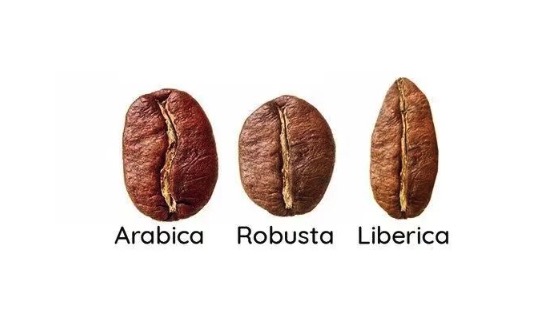
The Robusta we often talk about actually belongs to one of the Canephora varieties, but only Robusta in Canephora is suitable for extensive commercial planting. Gradually, Robusta has become the pronoun of the medium-grained species. Of course, another Canephora variety, Conilon, is also widely planted in Brazil today.
And the Typica, Bourbon, Caturra, Geisha, and so on that we are familiar with all belong to the varieties of Arabica. The reason why we know more and more complete information about the varieties of Arabica is partly because of their greater commercial planting value, and other rarely seen coffee varieties are mostly used for experimental research.
There is a most basic distinguishing feature between Arabica coffee and Canephora coffee, that is, Canephora is a double-chromosome coffee species, and Arabica is a four-times-chromosome coffee species. And there is scientific research that shows that Arabica may be a naturally hybrid offspring of the Canephora (male parent) and another kind of double-chromosome coffee species (female parent).
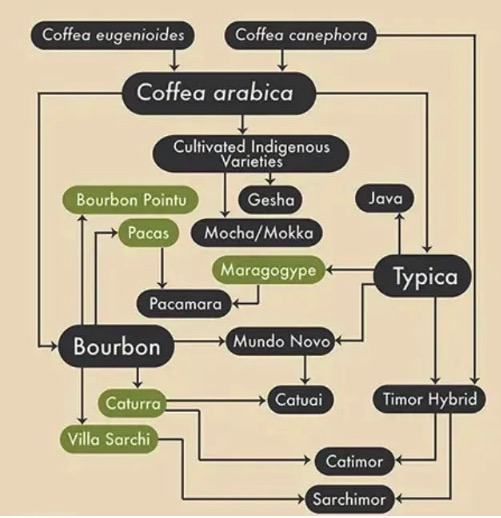
And after decades of research, experts have found a kind of coffee species called Eugenioides, which is temporarily translated into Chinese as Eugenioides, and claim that this coffee is the maternal line of Arabica that we have been looking for for many years. So sometimes it has also become the parent variety because the name Eugenioides is too difficult to pronounce.
What is the appeal of the parent variety?
Being able to be used in world-class coffee competitions, Eugenioides must have a very excellent flavor performance. Qianjie has seen many experts’ evaluations of this bean, which can be summed up as being different from the existing coffee beans, so sweet that it makes one doubt that this is not coffee.

The caffeine in this kind of coffee bean is only half of that of Arabica, which means that it has almost no bitterness. Moreover, it does not have the fruity acidity like Arabica, similar to the taste of sugar water, super sweet mango, and fruit papaya, neither sour nor bitter, and extremely sweet.
It is precisely this unique flavor performance that makes it a new rising star in the coffee competition.
Will Eugene replace Geisha and become the king of the next era?
Qianjie believes that although Eugene has an extremely great flavor, its extremely weak physical condition and the rare yield of a single plant are very difficult to promote planting. At present, only the Holy Estate and Cloud Estate of the Holguin family in Colombia where the coffee used in the coffee competition are planted more maturely. Eugene is also difficult to reach the position of Geisha today, and it is probably like the coffee bean Sudan Rume (Sudan Rume) used by Sasa to win the WBC championship in 2015, which is famous for a while. Coincidentally, the Sudan Rume used by Sasa also comes from the Cloud Estate of the Holguin family.




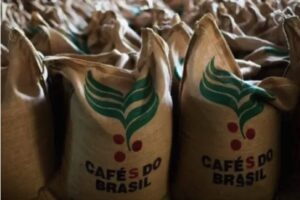


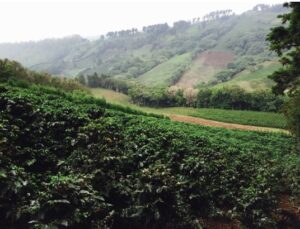

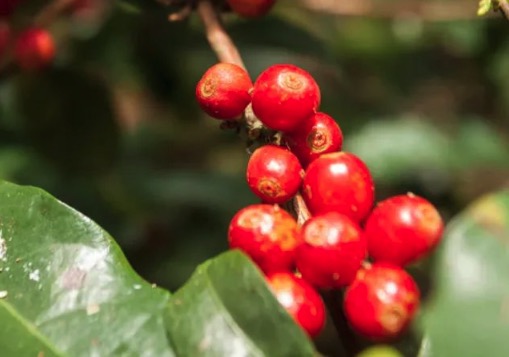
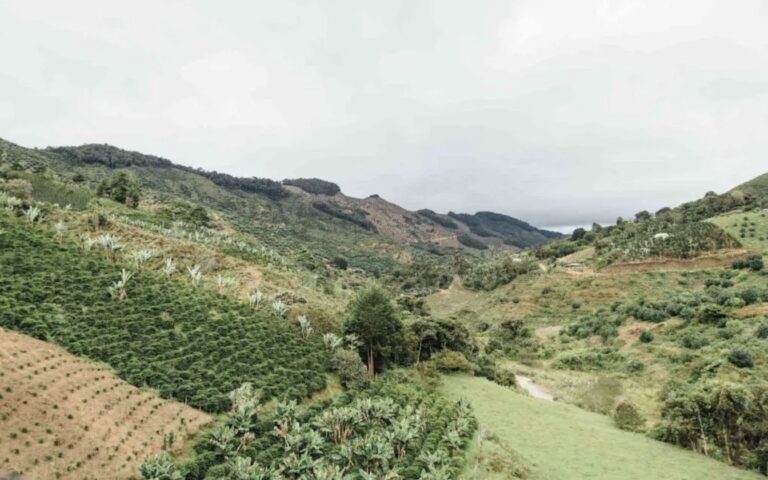

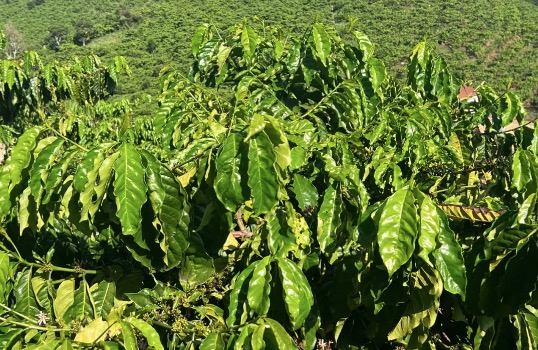



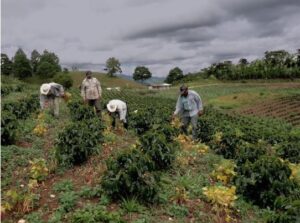


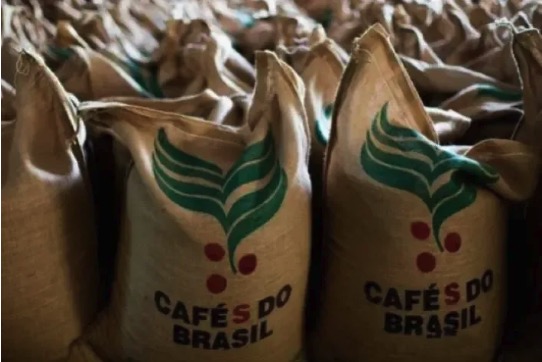


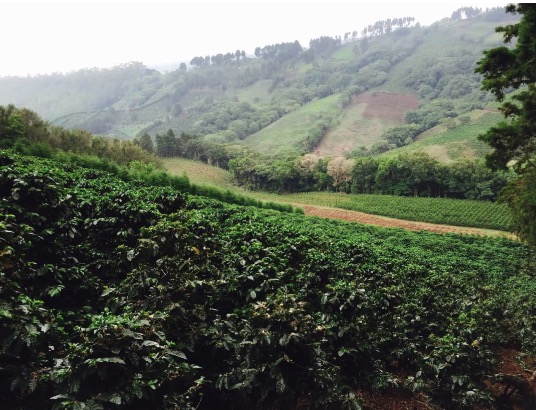
+ There are no comments
Add yours